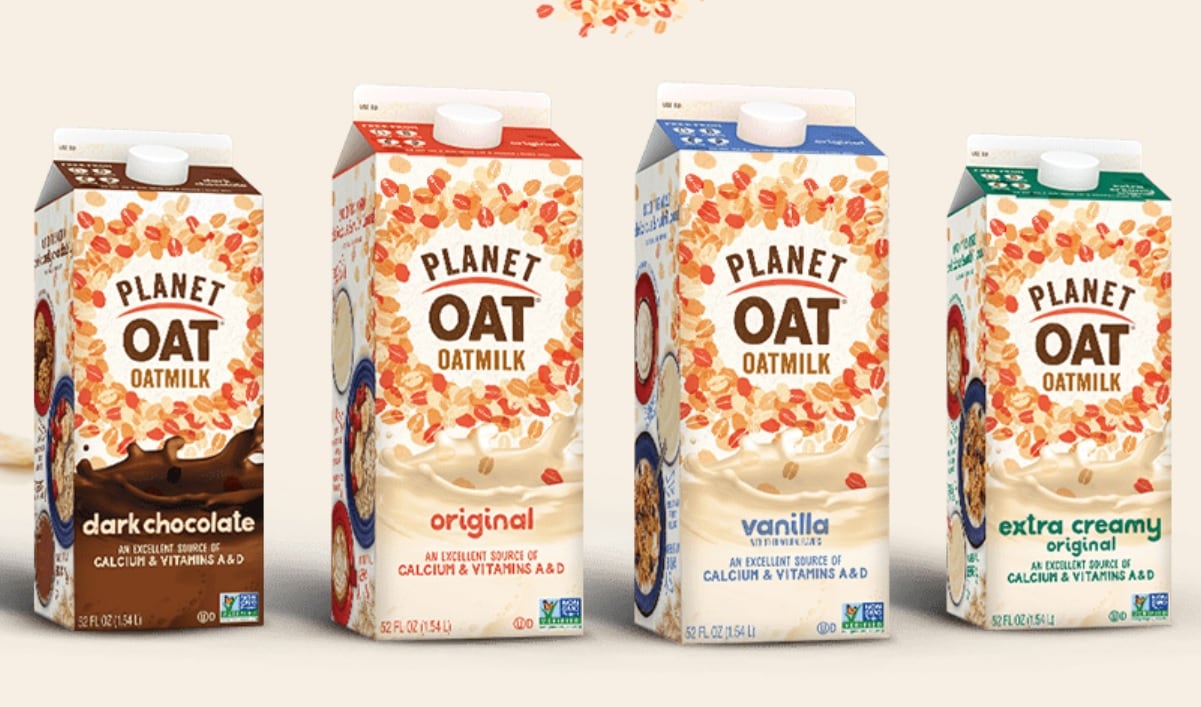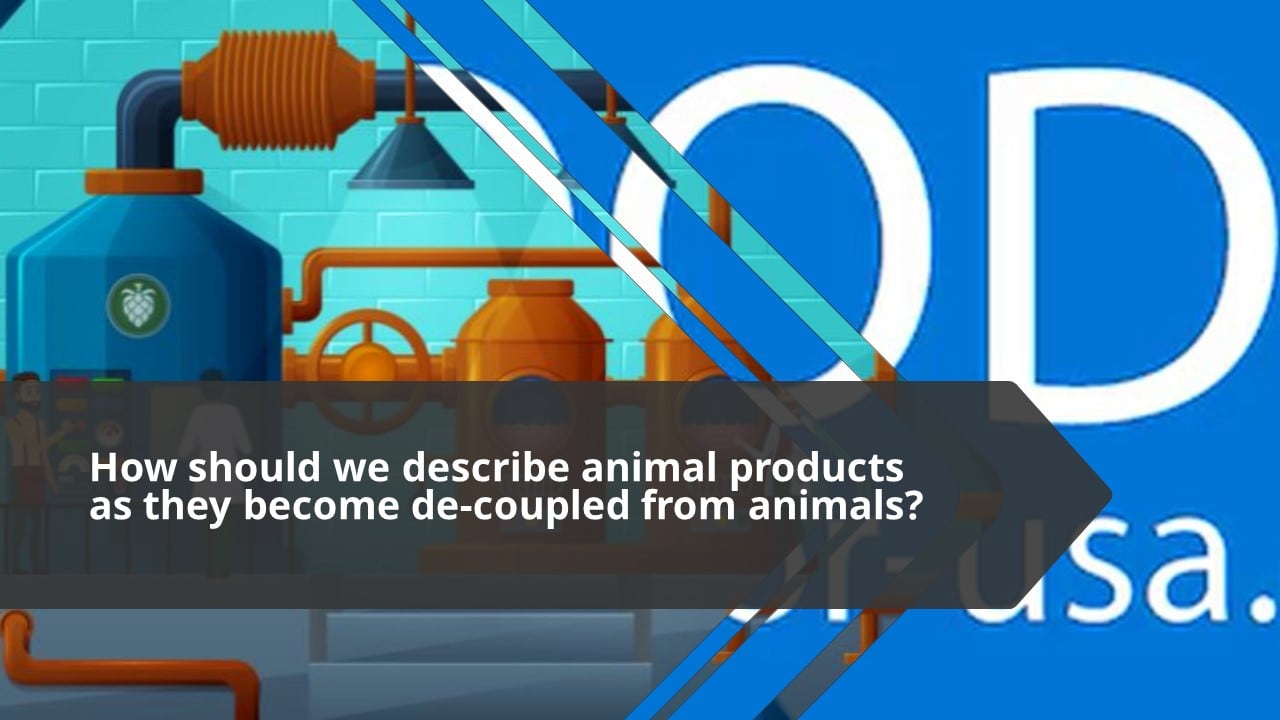Over the past two years, sales of oat milk have shot up an astronomical 1,200%, according to Nielsen, which estimated sales in the first half of the year at $316.4m in the US. And while still only a small fraction of the overall non-dairy milk category, which Nielsen estimated at $2.2b earlier this year, oat milk’s growth spurt is far from over. According to Market Research Future, the oat milk market is projected to reach $2.2b by 2026 with a compound annual growth rate of 6.2%.
The speed with which oat milk has gained popularity as a more environmentally-friendly, ethical and health conscious alternative to dairy milk, has attracted several influential new players this year, including the Coca-Cola Co., which launched Simply Oat branded oat milk in April, Danone which said in a recent earnings call is “executing a full restage of oat-based milk alternatives under the Silk brand,” UK-based Minor Figures, which expanded in the US in February, and Starbucks, which announced in March it would offer Oatly on its menu.
These join the ranks of many brands already playing in the US oat milk space – creating a highly fragmented category, of which Planet Oat claims to hold the top share position thanks in large part to its all-inclusive approach to innovation, distribution, marketing and more.
“We are all about meeting consumers where they are,” said Chris Ross, VP of marketing at Planet Oat, owned by dairy giant HP Hood.
He explained to FoodNavigator-USA that Planet Oat’s journey began in response to consumer demand for more options to help them achieve their wellness goals.
“Wellness means different things to different people, and people have very different relationships with milk,” with some preferring dairy and others opting for plant-based options, he said.
“We wanted to be there for them and saw that there was an opportunity to enter the plant-based milk space,” which would complement HP Hood’s role in the dairy space, he added.
Out of all the plant-based options, Ross said that oat quickly rose through the ranks to overtake soy and claim the number 2 spot behind almond, in part because it performs well in hot coffee – and by extension other hot platforms – with a clean taste, creamy texture and stable experience.
“Almond is by far still No. 1, but oat has a lot of upside and has proven that it can stand on its own two feet,” he said.
An easy-to-approach and -access campaign
To meet consumer demand and carve out a following in a crowded field, Planet Oat invested $30 million to promote its brand and plans to bump this up 10-20% next year alone.
“When you’re in new category and you’re a new brand, you have to be prepared to work for the product. The brand is not going to sell itself. We very much believe we have to be aggressive and take our message to the consumer because we are not just competing against oat brands. We’re competing against all plant-based options and dairy and you could even say we are competing against water,” Ross said.
A primary focus of the brand’s marketing campaign has been to make oat milk approachable with clear call outs about flavor, mouth feel, allergens and the quality of the ingredients on the packaging.
The brand also brought oat milk to the masses on the East Coast with a sampling campaign, “Love is in the Oat,” which allowed consumers to try a variety of the products for free. It also lowered the bar for trial by becoming the official oatmilk provider for Dunkin’, which it describes as one of the more affordable coffee chains in the country.
Broad distribution enhances access
Finally, the brand opted for distribution across a variety of economically inclusive retail chains, including Safeway, Albertsons, Publix and even New York bodegas.
Ross explained that Planet Oat focused on these retailers in part because it believes that “accessibility is really a subset of approachability, and I think that when you look at the basics and where the consumer is you have to show up on her shelves to be in her consideration. I don’t think it is realistic to expect her to do the work to find us… we have to be on the shelf where she already is so that she doesn’t have to create a new behavior.”
This includes in both the shelf stable non-dairy milk set where long-time milk alternative users are accustom to looking, but also in the refrigerator set where newer converts or flexitarians shop.
To further enhance access, Planet Oat is priced at $3.99 per 52 oz carton – about $1-$2 less than some competitors.
Innovation enhances familiarity, access
Planet Oat is hoping to make the idea of oat-based dairy alternatives even more familiar by taking the ingredient across categories to include not just a variety of ‘milks’ but also coffee creamers, and frozen desserts.
As consumers become more at ease and excited by oat milk, the brand also hopes to support the ‘super user,’ by offering soon a large 86-ounce plastic jug.
“We are really excited about going deeper in each category in 2022 and 2023 with a variety of other new innovations,” added Ross.



